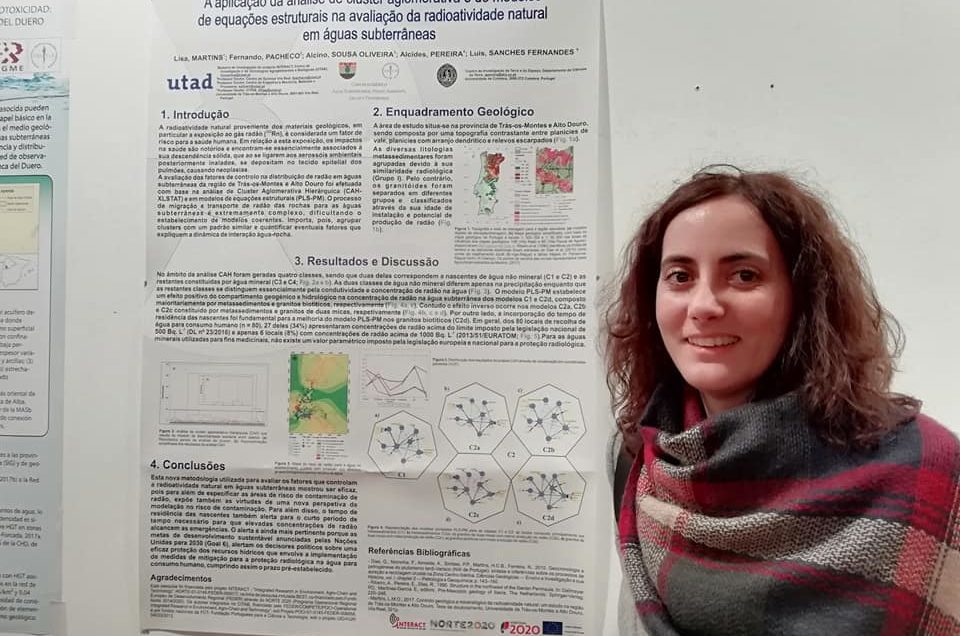INTERACT at congress in Spain

INTERACT project (“Integrative Research in Environment, Agro-Chians and Technology”) was present at an Iberian event in Spain. The Iberian Congress on Groundwater, Environment, Health and Heritage took place from 12th to 15th November in Salamanca, Spain.
Lisa Martins, a research fellow at the BEST (Bio-Economy and Sustainability) research line, presented a paper in a poster format about her work on the “application of cluster analysis and structural equation models in the evaluation of natural radioactivity in groundwater”, which is still under development.
The research consists in the evaluation of “factors controlling natural radioactivity in groundwater”, and the application of cluster and structural equations models was “crucial” to “specify the areas of greatest risk of exposure to radon in a new perspective of contamination risk modelling”.
The work of Lisa Martins is particularly relevant given that the sustainable development goals listed by the United Nations for 2030 oblige “policy makers” to take action for “effective protection of water resources”. In this case, these actions translate into the “implementation of mitigation measures for the radiological protection of water for human consumption” on time. According to the studies carried out so far, there is a short period of time “for water with high radon concentrations to reach the emergencies used for human consumption,” the researcher explains who bases this conclusion on the “short half-life of the radon” and the “residence time in the studied water sources”.
The participation in this Iberian congress met the expectations. Lisa Martins said that “it was possible to exchange views with several researchers” whose research work covers other topics. “The diversity of subjects and methodologies addressed in relation to groundwater, environment, health and heritage is notorious”, she admits.

























